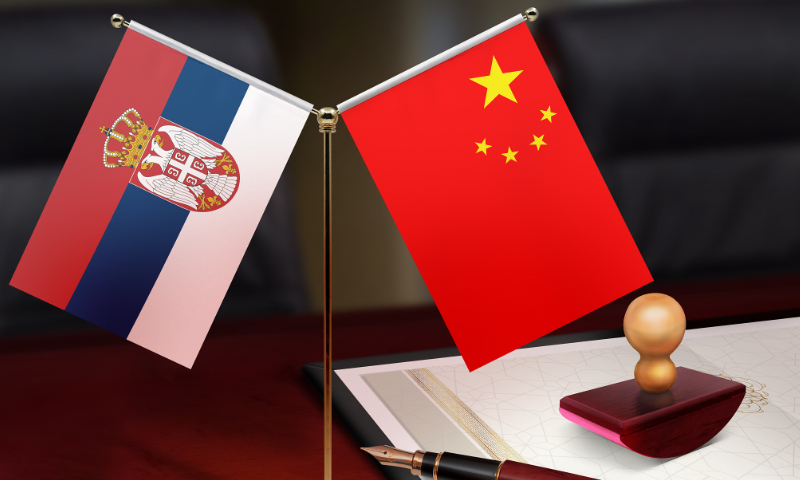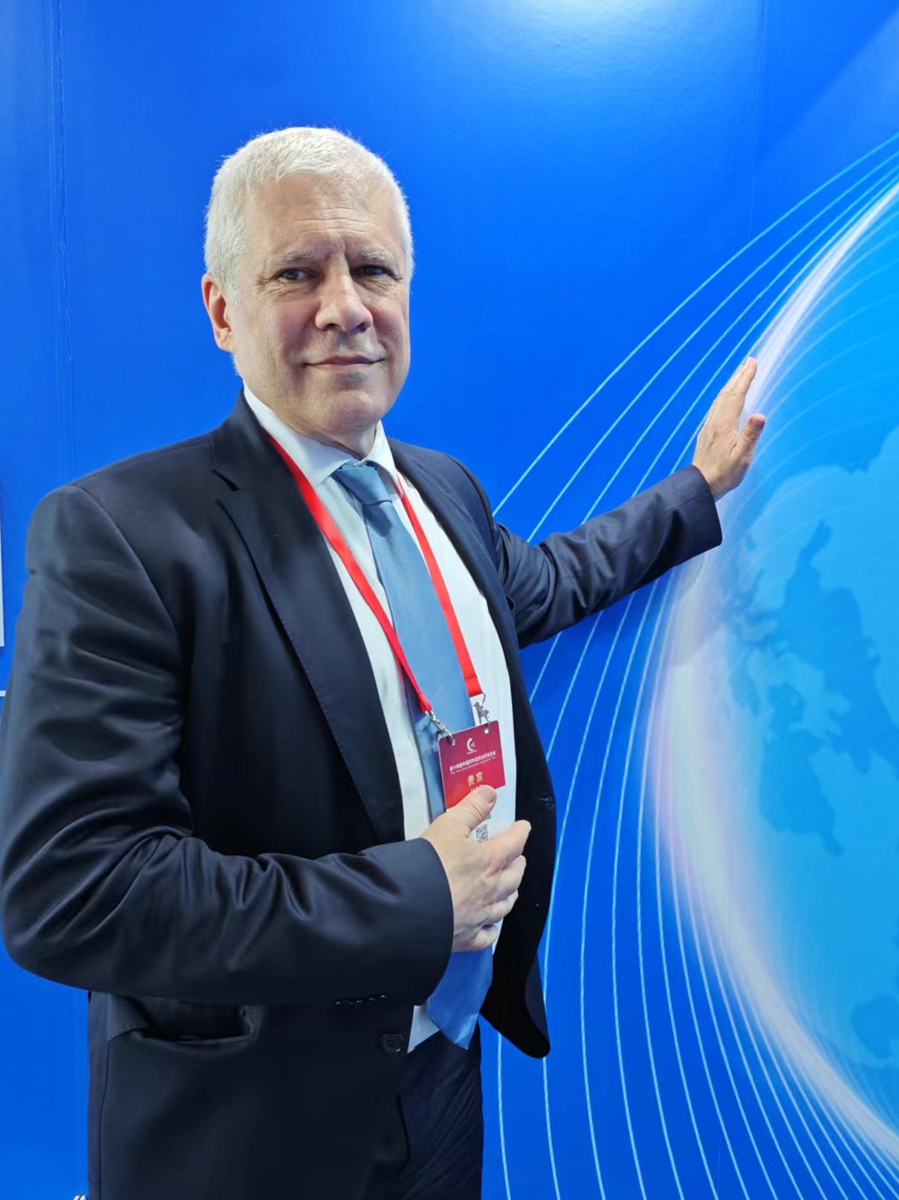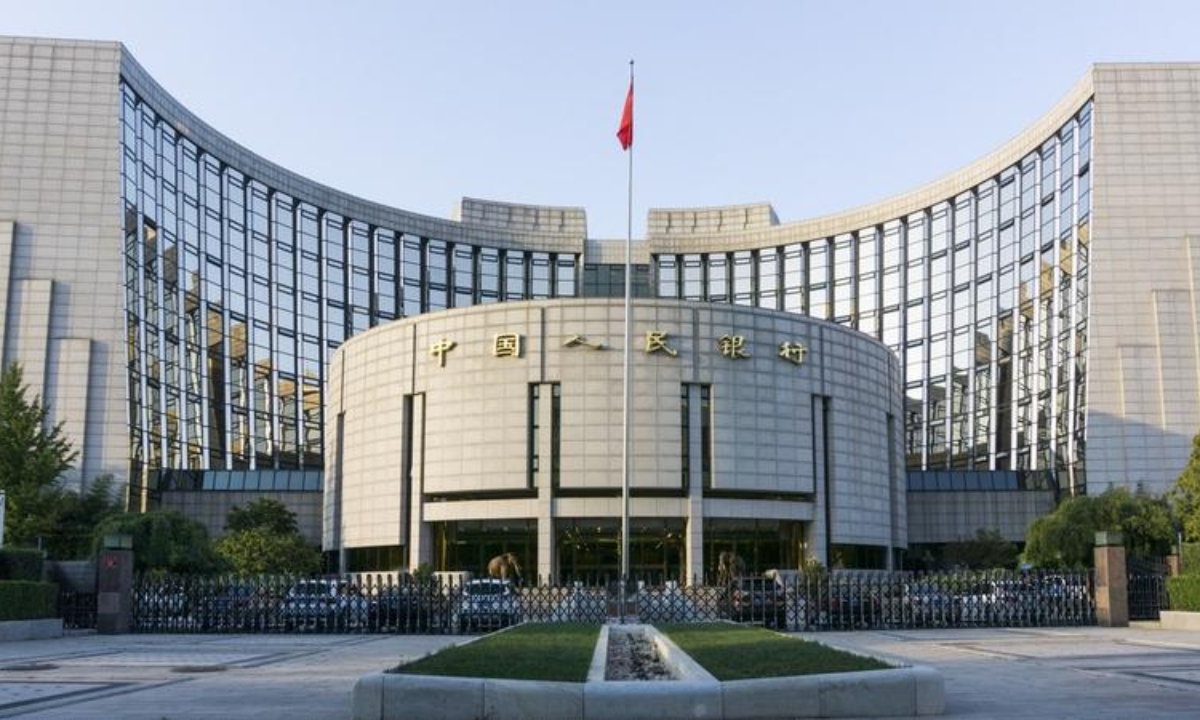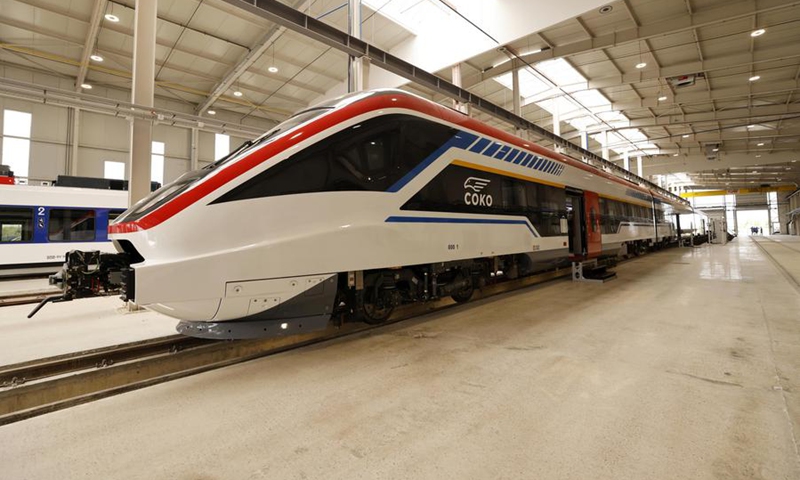Building China-Serbia community with shared future presents numerous opportunities: former Serbian president
Building China-Serbia community with shared future presents considerable opportunities for Serbia: former Serbian president

China Serbia Photo: VCG
Editor's Note:
China-Serbia's ironclad friendship has stood the test of the changing international landscape, and is characterized by profound historical roots, solid political foundation, extensive common interests and strong popular support. Serbia is China's first comprehensive strategic partner in Central and Eastern Europe. The bilateral relationship has become an example for China's friendly relations with other European countries. Global Times (GT) reporter Yin Yeping spoke with Boris Tadić (Tadić), former president of Serbia and chairman of Belt and Road Global Council, in a recent exclusive interview. He shared with us how the strong relations with China have injected the impetus to the high-quality development of Serbia, and how China-proposed Belt and Road Initiative (BRI) has brought about changes to the region and the world.
GT: How do you perceive the close economic and trade ties between China and Serbia, and what potential do you see for further deepening this collaboration?
Tadić: We have traditionally had very good relations between our two countries, even when we were part of Yugoslavia, fostering a developing partnership and mutual understanding.
After Serbia became an independent state, we signed a strategic partnership with China in 2009. At that time, China wasn't as strong a global power as it is today, but it was emerging as a rising star on the global stage.
We began developing our relations within a very specific context. For example, we faced the necessity of constructing a very long and difficult bridge over the Danube River, the second longest in Europe, connecting many countries in the region. This bridge was needed in Belgrade, marking one of the first major infrastructure projects in Europe completed by China. This achievement held immense importance for me, and it also showcased China's capability to undertake and complete such significant infrastructure projects in the region.
Now, we find ourselves in a vastly different situation from the beginning of our cooperation in this field, with increased cooperation and investment from China.
China's investment in Serbia has increased significantly, with Chinese companies becoming major players in mining and steel industries, leading to the establishment of entire industries and numerous investments from China.
Following President Xi Jinping's recent visit to Serbia, new opportunities for cooperation have emerged. During his visit, both countries decided to build a community with a shared future, which presents numerous opportunities for my country as well as businesses from both sides.
This marks a progression from the strategic partnership established during my presidency to the comprehensive strategic partnership established eight years ago and, most recently, to building a community with a shared future between China and Serbia. This represents an incredible level of cooperation between our two nations.

Boris Tadić, former President of Serbia Photo: Yin Yeping/GT
GT: What are your thoughts on the opportunities presented by China's Belt and Road Initiative for Serbia and the global community?
Tadić: When I was the president of Serbia, there was hardly any mention of the Silk Road, but I understand the immense mutual benefits that would result from China's realization of this joint initiative. When President Xi first proposed the idea of building an "economic belt along the Silk Road" in Kazakhstan in 2013, which, combined with the proposal of the 21st Century Maritime Silk Road, eventually became the Belt and Road Initiative (BRI), it became abundantly clear that we were entering a new era. This initiative holds incredible importance not only for my country but for all nations in its path.
The BRI plays an important role in building connectivity, including transportation networks like railway, specifically, for the countries that are landlocked in Central Asia including Kyrgyzstan and Uzbekistan. Without the BRI projects like railways, those countries would stay landlocked forever. And this is the way how you are opening corridors for the such countries. And China is bringing opportunities to countries not just in the Central Asia but Eastern Europe as well as the Western Europe.
This is not the end but a beginning of a greater synergy. China is going to invest more in the future in many infrastructure projects including harbors.
When I was president, George Papandreou, who was the Prime Minister of Greece at that time, asked for my assistance in facilitating discussions with potential Chinese investors regarding the Port of Piraeus. I served as the intermediary, ultimately helping to bring Chinese investment to Piraeus in Greece. I anticipate that China will continue to invest in harbors across the European continent for helping the world with greater connectivity.
GT: When you were president, some very important projects were signed with China, paving the way for a greater cooperation in the years to come. What are your comments on the significance of these projects to Serbia and the Serbian people?
Tadić: Our cooperation with China has been very good since the beginning. We talked about building fundamental infrastructure projects such as bridges. Without bridges, you cannot create better conditions for the people because the rivers were barriers and not corridors. We changed that, and that was a tremendously important bridge. With the Chinese partners, we started to build a highway surrounding Belgrade. That was very important. We started to do that during my term. My successor has been continuing that, and the development they achieved is also incredible. During the election campaign, we were competitors, but what was crystal clear was that our cooperation with China will continue, and I'm very happy with such cooperation.
GT: How do you anticipate the future of China-Serbia relations?
Tadić: I think we have ample room to maneuver in the field of new technology, not only in Serbia but also in Southeast Europe. There is potential for cooperation in the automotive industry and new technologies. I'm always imagining how and where we can cooperate to strengthen relations between our two countries. China is a huge country, while we are very small and geographically distant. However, we are comprehensive strategic partners and very good friends. I believe that under the BRI, the future will be even brighter for China-Serbia ties.
GT: There have been intensified moves from the US-led West targeting China, calling for "decoupling" or "de-risking," highlighted by the US' decision to hike tariffs on Chinese electric vehicles (EVs). What is your response to these developments?
Tadić: Elon Musk pointed out in his statement that he's against the tariffs imposed by the US on Chinese EVs - the main competitor of Chinese EVs is against the tariffs.
I oppose tariffs and advocate for better competition. However, I think the world is not fully aware of China's success. There's a misconception in the West that the Chinese can achieve everything overnight. But it's not about creating tremendous changes overnight, but about the enormous efforts that the Chinese people are investing in to achieve such changes and development.
About a decade ago, I was discussing with my friends from Western countries, explaining to them that in the next 10 years or so, China would excel in car production worldwide and become the main competitor in the industry. However, they ignored my prediction, thinking it was impossible. They believed that their advancement in car industry was insurmountable.
At the same time, China was indeed opening up competition within the country and investing heavily in its factories during that time. Chinese companies are now producing fantastic cars. Recently, Chinese companies have even launched a "flying car" model capable of traveling swiftly over water and covering short distances efficiently. This incredible achievement is a result of intense competition among Chinese companies in the domestic market, with only the most competitive surviving to compete on the global stage.
However, some of the Western companies are right now not able to react in the proper way to market competition and this is why the US government announced to impose tariffs on Chinese EVs, which is not fair and not in accordance with the global trade rules. This reaction is something that I oppose and I'm following Elon Musk who is against that.
The ultimate outcome for the car industry could be the integration of neuroscience, artificial intelligence, digitalization, and advanced mobile network technology, such as the 5th or 6th generation networks. This integration could lead to the development of incredible cars that offer a multitude of services to customers and drivers, enhancing security, comfort and speed.
Instead of imposing tariffs and sanctions on competitors, producers in the West should focus on advancing these technologies to revolutionize the automotive industry.
GT: What are your perspectives on the growth of the Chinese economy?
Tadić: Anyone analyzing the Chinese economy based on the data can witness its remarkable recovery following the global economic crisis that has affected the entire world. The Chinese economy is performing exceptionally well. China achieved a growth rate of 5.2 percent in 2023, and the outlook for the beginning of 2024 appears even more promising and stable.
The size of the Chinese economy has reached a new milestone, and several other indicators also point to a momentum of recovery within the Chinese economy, which is very positive news for the global economy.
Nowadays, we are witnessing a very fragile global situation, marked by numerous conflicts worldwide. During times of widespread conflicts, the global economy usually suffers. While we cannot foresee the end of these conflicts, there is a somewhat positive aspect amid this grave moment in the global arena: the economy is still functioning, which is crucial. One of the reasons for this is the vital capacity and leading role of the Chinese economy in global trade and economy.
The economic achievements of China are crucial and spectacular. Many years ago, when I first visited China, no one even considered the possibility that China would become a global leader in new technologies, the IT sector, and the automotive industry. However, nowadays, we can confidently underline once again that China plays a crucial role in these very important economic fields, where it has assumed a leading position.



